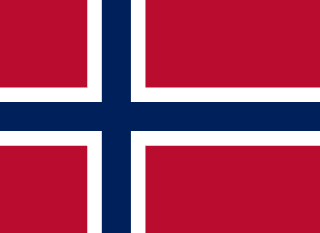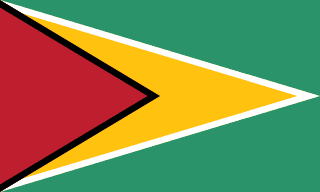

Employer of Record Guide in Norway
Norway's progressive employment landscape offers incredible talent opportunities, but navigating its unique collective bargaining system and comprehensive benefits structure requires local expertise. Let us guide you through the essentials of compliant hiring in one of Europe's most employee-friendly markets.
Capital City
Currency
Languages
Population size
Services available in this country:

Key stats and facts
From Oslo's thriving tech scene to Bergen's maritime expertise, Norway's economy is powered by skilled professionals across diverse industries. Understanding the market dynamics and regulatory environment is your first step toward successful expansion.
Major economic hubs
Skills in demand
Currency
Language
GDP per Capita
Standard Tax Rate
Your EOR guide in Norway
Norway's employment framework balances worker protections with business flexibility through collective agreements and progressive policies. Here's what you need to know about compensation, benefits, and compliance requirements to hire confidently.
Minimum Wage
Norway does not have a statutory minimum wage set by law. Instead, wages are typically determined through collective bargaining agreements between trade unions and employer associations. However, certain sectors have established minimum rates:
- General guideline: Most collective agreements establish minimum wages ranging from NOK 180-220 per hour for entry-level positions
- Skilled workers: Typically earn NOK 250-350+ per hour depending on industry and experience
- Coverage: Approximately 70% of Norwegian workers are covered by collective agreements
Note: Foreign workers must receive wages and working conditions that are not less favourable than those provided for in applicable collective agreements or what is customary for the occupation in the location where the work is performed.
Payroll Cycle
- Monthly: Most common payment frequency (12 pay periods per year)
- Bi-weekly: Less common but acceptable (26 pay periods per year)
- Payment timing: Salaries must be paid by the end of the month for work performed that month
Individual Income Tax
Norway operates a progressive tax system with both national and municipal taxes:
| Income Bracket (NOK) | National Tax Rate | Municipal Tax Rate | Total Rate Range |
|---|---|---|---|
| Up to NOK 208,050 | 0% | ~22% | ~22% |
| NOK 208,051 to NOK 292,850 | 1.7% | ~22% | ~24% |
| NOK 292,851 to NOK 670,000 | 4.0% | ~22% | ~26% |
| NOK 670,001 to NOK 937,900 | 13.4% | ~22% | ~35% |
| NOK 937,901 to NOK 1,350,000 | 16.4% | ~22% | ~38% |
| Over NOK 1,350,000 | 17.4% | ~22% | ~39% |
Note: Municipal tax rates vary by municipality, typically ranging from 11.5% to 23.8%. The figures above use approximate averages.
Tax Residency Criteria
Individuals are considered Norwegian tax residents if they:
- Stay in Norway for more than 183 days in a 12-month period, or
- Have their home in Norway, or
- Have their main connection to Norway through work or family
Tax residents pay Norwegian tax on worldwide income, while non-residents only pay tax on Norwegian-source income.
Employer Payroll Contributions
Norwegian employers must pay significant social security contributions on top of employee salaries:
| Contribution Type | Rate | Notes |
|---|---|---|
| National Insurance (Folketrygden) | 14.1% | Standard rate for most regions |
| National Insurance (Reduced) | 10.6% - 5.1% | For certain northern/remote regions |
| Occupational Injury Insurance | 0.5% - 2.0% | Varies by industry risk level |
| Total Employer Cost | ~15% - 16% | Plus mandatory pension contributions |
Additional Requirements:
- Occupational Pension: Minimum 2% of salary between 1G and 12G (where 1G = NOK 124,028 in 2025)
- Holiday Pay Reserve: 12% of gross salary set aside for vacation pay
Working Hours
The standard working week in Norway is 37.5 hours over 5 days, typically Monday through Friday from 8:00 AM to 4:00 PM with a 30-minute unpaid lunch break.
Daily Limits:
- Maximum 9 hours per day
- Maximum 10 hours including overtime
Weekly Limits:
- Standard: 37.5 hours
- Maximum with overtime: 48 hours (averaged over 4 weeks)
Exempt Categories:
- Senior executives and managers
- Employees with independent work arrangements
- Certain professional roles (with written agreements)
Overtime Pay
- Threshold: Hours worked beyond 37.5 hours per week or 9 hours per day
- Rate: Minimum 40% premium above regular hourly wage
- Maximum: 10 hours of overtime per week, 25 hours per month, 200 hours per year
- Alternative: Time off in lieu may be agreed upon instead of overtime pay
Employment Classifications
Full-time vs Part-time:
- Full-time: 37.5 hours per week
- Part-time: Less than 37.5 hours per week (entitled to pro-rated benefits)
Permanent vs Temporary:
- Permanent: Standard employment relationship with full protections
- Temporary: Limited to specific circumstances (project work, seasonal, replacement)
- Fixed-term: Maximum 4 years, then must convert to permanent
Bonus Regulations:
- Bonuses are subject to the same tax and social security contributions as regular salary
- Holiday pay (12%) must be calculated on bonus payments
Vacation Leave
Norway provides some of the most generous vacation entitlements globally:
- Standard Entitlement: 25 working days (5 weeks) of paid vacation per year
- Accrual: Earned during the calendar year, taken the following year
- Holiday Pay: 12% of previous year's gross earnings
- Timing: Employees have the right to take 3 consecutive weeks during June-September
- Payout: Unused vacation must be paid out upon termination
Sick Leave
Norway offers comprehensive sick leave coverage:
- Self-certification: First 3 days (employee declares illness)
- Employer-paid: Days 1-16 at 100% of salary
- National Insurance: From day 17 onwards, paid by NAV (Norwegian Labour and Welfare Administration)
- Duration: Up to 52 weeks for the same illness
- Medical Certificate: Required from day 4 (or day 1 if requested by employer)
Maternity Leave
- Duration: 15 weeks of paid leave (49 weeks total parental leave)
- Timing: 3 weeks must be taken before birth, 6 weeks after birth
- Payment: 100% of salary (up to 6G = NOK 744,168) or 80% for extended period
- Job Protection: Full protection with right to return to same position
Parental Leave
Norway's parental leave system is among the world's most progressive:
- Total Duration: 49 weeks at 100% pay or 59 weeks at 80% pay
- Father's Quota: 15 weeks reserved exclusively for fathers (non-transferable)
- Mother's Quota: 15 weeks reserved exclusively for mothers
- Shared Period: 16-26 weeks that can be divided between parents
- Flexibility: Can be taken part-time or in blocks until child turns 3
Other Statutory Leave
Bereavement Leave:
- Up to 14 days for death of spouse/cohabitant or child
- Up to 3 days for death of parent, sibling, or grandparent
Care Leave:
- Up to 10 days per year to care for sick children under 12
- Up to 15 days for single parents
- Additional days for children with chronic illness or disability
Emergency Leave:
- Necessary time off for sudden family emergencies
- Typically unpaid unless covered by collective agreement
Leave Summary
| Leave Type | Duration | Payment | Funding Source |
|---|---|---|---|
| Vacation | 25 days/year | 12% of annual salary | Employer |
| Sick Leave (Days 1-16) | Up to 16 days | 100% salary | Employer |
| Sick Leave (Day 17+) | Up to 52 weeks | ~66% salary | National Insurance |
| Maternity | 15 weeks | 100% salary | National Insurance |
| Parental | 49-59 weeks total | 80-100% salary | National Insurance |
| Care Leave | 10-15 days/year | 100% salary | National Insurance |
Termination Categories
Termination for Cause (Oppsigelse):
- Requires objective grounds related to the employee or business needs
- Must follow proper procedures including warnings and improvement opportunities
- Common grounds: poor performance, misconduct, redundancy, business closure
Summary Dismissal (Avskjed):
- For serious breaches of contract
- No notice period required
- High burden of proof on employer
- Examples: theft, serious insubordination, breach of confidentiality
Notice Period Requirements
Notice periods are based on length of service and age:
| Length of Service | Notice Period |
|---|---|
| Less than 1 year | 1 month |
| 1-5 years | 2 months |
| 5-10 years | 3 months |
| 10+ years | 4 months |
| 50+ years old with 10+ years service | 5 months |
| 55+ years old with 15+ years service | 6 months |
Mutual Notice:
- Employee notice to employer: 1 month (unless otherwise agreed)
- During probation: 14 days' notice from either party
Severance Pay
Norway does not mandate statutory severance pay beyond the notice period. However:
- Collective agreements may provide additional severance
- Employees over 50 with long service may negotiate enhanced packages
- Redundancy situations may trigger additional compensation under collective agreements
Legal Protections
Protected Categories:
- Pregnant employees and those on parental leave
- Employee representatives and union officials
- Employees who have filed complaints or whistleblown
- Employees over 70 (special rules apply)
Procedural Requirements:
- Written termination notice with clear reasoning
- Consultation with employee representatives if applicable
- Opportunity for employee to respond to allegations
- Proper documentation of performance issues or misconduct
Final Pay Requirements
- Final salary payment: By the end of the month following termination
- Accrued vacation pay: Must be paid out based on 12% calculation
- Outstanding expenses: Reimbursement within 30 days
- Certificate of employment: Must be provided upon request
National Public Holidays
Norway observes the following public holidays:
| Holiday | Date | Notes |
|---|---|---|
| New Year's Day | January 1 | Fixed |
| Maundy Thursday | March/April | Varies (Easter-related) |
| Good Friday | March/April | Varies (Easter-related) |
| Easter Monday | March/April | Varies (Easter-related) |
| Labour Day | May 1 | Fixed |
| Constitution Day | May 17 | Norway's National Day |
| Ascension Day | May/June | Varies (39 days after Easter) |
| Whit Monday | May/June | Varies (50 days after Easter) |
| Christmas Day | December 25 | Fixed |
| Boxing Day | December 26 | Fixed |
Holiday Pay Rules
Eligibility:
- All employees are entitled to holiday pay regardless of length of service
- Part-time employees receive pro-rated holiday pay
Payment Rates:
- Working on holidays: Double pay (100% premium) plus a substitute day off
- Holiday pay: 12% of previous year's gross earnings, paid before vacation period
Timing:
- Holiday pay is typically paid in June before the main vacation period
- Employees can request advance payment of holiday pay
Regional Variations
While national holidays apply throughout Norway, some regions may observe additional local holidays or have different customs around holiday observance. Collective agreements may also provide additional days off specific to certain industries or regions.
Required Documentation
Employment Contract Requirements:
- Written contract mandatory for all employees
- Must include: job title, duties, salary, working hours, vacation entitlement, notice periods
- Must be provided within one month of employment start
- Language: Norwegian or English (employee's choice)
Government Registration:
- National ID Number (Fødselsnummer): Required for all employees
- Tax Card (Skattekort): Obtained from Skatteetaten (Tax Administration)
- EU/EEA Citizens: Right to work automatically
- Non-EU Citizens: Work permit required before employment begins
Banking Setup:
- Norwegian bank account typically required for salary payments
- International transfers possible but may incur fees
- Bank account opening requires proof of employment and residence
Work Authorization
EU/EEA/Swiss Citizens:
- Automatic right to work
- Must register with police if staying longer than 3 months
- Registration certificate (Registreringsbevis) required for long-term residence
Non-EU Citizens:
- Work permit required before arrival
- Skilled worker permit, specialist permit, or seasonal worker permit
- Application process can take 2-6 months
- Employer may need to demonstrate labour market testing
Background Checks
Permitted Checks:
- Criminal background check (Politiattest) for relevant positions
- Education verification
- Employment history verification
- Credit checks only for financial positions
Legal Requirements:
- Employee consent required for all background checks
- Must be relevant to the position
- Results must be handled confidentially under GDPR
Data Protection Compliance
GDPR Requirements:
- Employee consent for data processing
- Clear privacy policies
- Data minimisation principles
- Right to access, rectify, and delete personal data
- Data breach notification procedures
Employment Records:
- Personnel files must be maintained securely
- Employee access rights to their own files
- Retention periods specified by law
- Cross-border data transfer restrictions
Probationary Periods
- Standard Period: Up to 6 months
- Shorter Notice: 14 days' notice during probation (both parties)
- Full Rights: Employees retain most employment rights during probation
- Performance Standards: Must be clearly communicated and reasonable
Onboarding Timeline
| Step | Timeline |
|---|---|
| Job offer accepted | Day 0 |
| Work permit verification (non-EU) | Pre-employment |
| Employment contract signed | Day 1-7 |
| Tax registration completed | Day 1-14 |
| Bank account setup | Day 1-30 |
| National Insurance registration | Day 1-30 |
| Occupational pension enrollment | Day 1-60 |
Worker Classification
Employee vs Independent Contractor: Norwegian authorities strictly scrutinise worker classification to prevent misclassification:
Employee Indicators:
- Work under employer's direction and control
- Use employer's equipment and facilities
- Integrated into employer's organisation
- Regular salary payments with tax withholding
- Entitled to vacation, sick leave, and other benefits
Contractor Indicators:
- Independent business operation
- Own equipment and bear business risk
- Invoice for services with VAT
- Multiple clients
- Responsible for own taxes and social security
Consequences of Misclassification:
- Retroactive employment rights and benefits
- Back payment of social security contributions
- Tax penalties and interest
- Potential criminal liability for tax evasion
Collective Bargaining
Union Density:
- Approximately 50% of Norwegian workers are union members
- 70% of workers covered by collective agreements
- Strong tradition of tripartite cooperation (government, employers, unions)
Collective Agreement Impact:
- Often provides better terms than statutory minimums
- May include higher wages, additional vacation days, enhanced benefits
- Dispute resolution procedures
- Industry-specific working conditions
Key Sectors with Strong Union Presence:
- Public sector (education, healthcare, government)
- Manufacturing and industry
- Transportation and logistics
- Construction
Cultural Workplace Norms
Work-Life Balance:
- Strong emphasis on work-life balance
- Flexible working arrangements common
- "Dugnad" culture - collective voluntary work
- Flat organisational structures with informal communication
Communication Style:
- Direct but respectful communication
- Consensus-building approach to decision-making
- Punctuality highly valued
- Informal dress codes in many workplaces
Diversity and Inclusion:
- Strong anti-discrimination laws
- Gender equality emphasis (parental leave, board representation)
- Accommodation requirements for disabilities
- Integration support for immigrant workers
Remote Work Regulations
Legal Framework:
- Employees have right to request flexible working arrangements
- Employer must provide written response to requests
- Health and safety obligations extend to home offices
- Working time regulations apply to remote work
Employer Obligations:
- Provide necessary equipment or reimbursement
- Ensure ergonomic home office setup
- Maintain regular contact and supervision
- Cover reasonable home office expenses
Cross-Border Considerations:
- Tax implications for employees working from other countries
- Social security coverage may be affected
- Work permit requirements for non-EU citizens working remotely from Norway
What Borderless AI Handles
When you hire through Borderless AI in Norway, we manage:
- Employment contract drafting and compliance
- Payroll processing and tax withholding
- Social security registration and contributions
- Holiday pay calculations and reserves
- Compliance with Working Environment Act
- Local labour law updates and changes
- Employee onboarding and documentation
- Termination procedures and final settlements
Built-in benefits packages for Norway
When the world is your competition, it pays to incentivize new hires and existing alike. Borderless AI benefits packages typically inlucde:

Medical Insurance

Dental Insurance

Retirement Contribution

Life Insurance

Vision Insurance
Explore other countries

Unlock global hiring potential
Simplify your payroll and hiring processes today.








